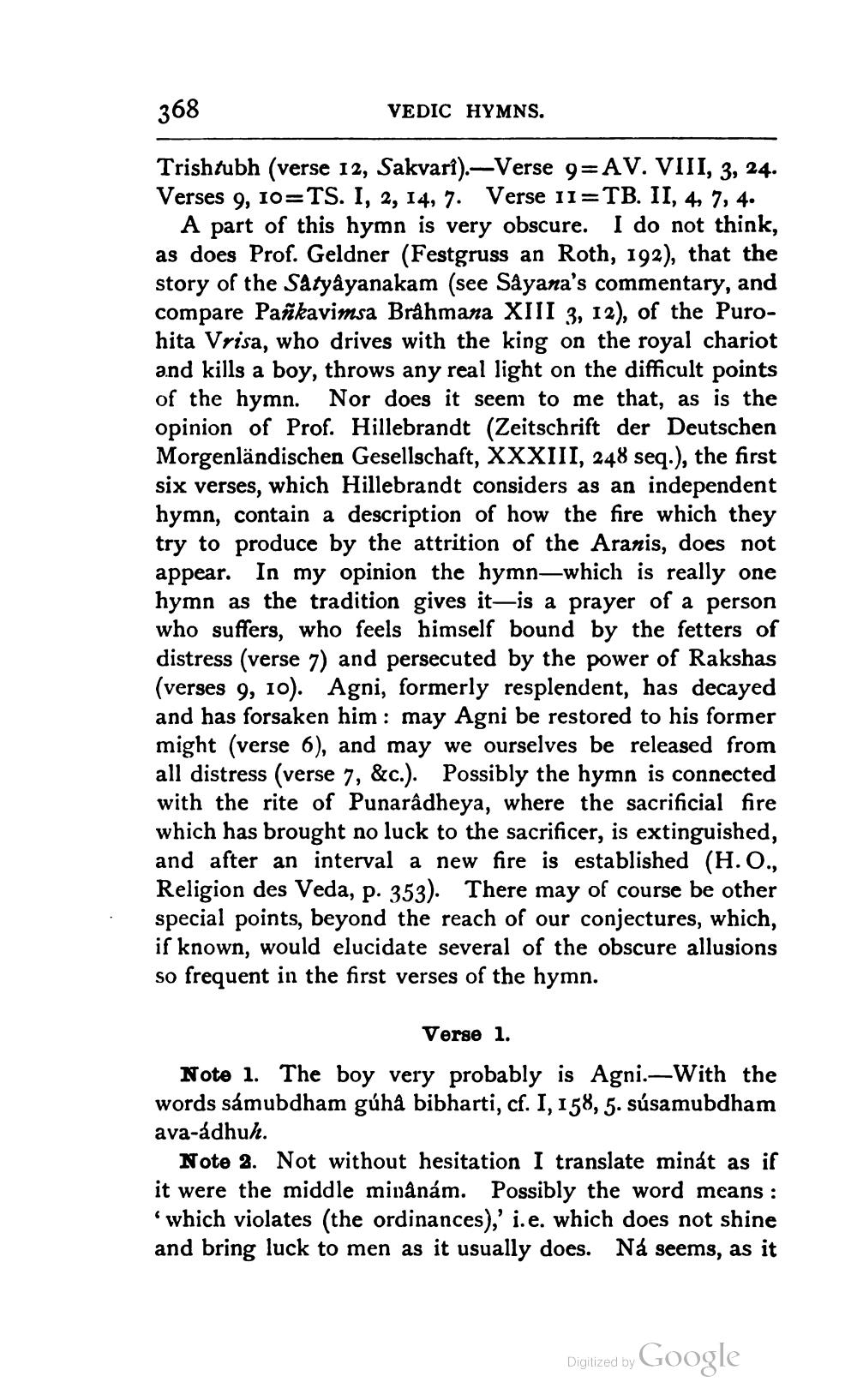________________
368
VEDIC HYMNS.
Trishtubh (verse 12, Sakvari).—Verse 9=AV. VIII, 3, 24. Verses 9, 10=TS. I, 2, 14, 7. Verse 11=TB. II, 4, 7, 4.
A part of this hymn is very obscure. I do not think, as does Prof. Geldner (Festgruss an Roth, 192), that the story of the Satyâyanakam (see Sayana's commentary, and compare Pankavimsa Bråhmana XIII 3, 12), of the Purohita Vrisa, who drives with the king on the royal chariot and kills a boy, throws any real light on the difficult points of the hymn. Nor does it seem to me that, as is the opinion of Prof. Hillebrandt (Zeitschrift der Deutschen Morgenländischen Gesellschaft, XXXIII, 248 seq.), the first six verses, which Hillebrandt considers as an independent hymn, contain a description of how the fire which they try to produce by the attrition of the Aranis, does not appear. In my opinion the hymn—which is really one hymn as the tradition gives it—is a prayer of a person who suffers, who feels himself bound by the fetters of distress (verse 7) and persecuted by the power of Rakshas (verses 9, 10). Agni, formerly resplendent, has decayed and has forsaken him: may Agni be restored to his former might (verse 6), and may we ourselves be released from all distress (verse 7, &c.). Possibly the hymn is connected with the rite of Punarâdheya, where the sacrificial fire which has brought no luck to the sacrificer, is extinguished, and after an interval a new fire is established (H.O., Religion des Veda, p. 353). There may of course be other special points, beyond the reach of our conjectures, which, if known, would elucidate several of the obscure allusions so frequent in the first verses of the hymn.
Verse 1. Note 1. The boy very probably is Agni.— With the words sámubdham gúhà bibharti, cf. I, 158, 5. súsamubdham ava-ádhuh.
Note 2. Not without hesitation I translate minát as if it were the middle minânám. Possibly the word means : which violates (the ordinances),' i.e. which does not shine and bring luck to men as it usually does. Ná seems, as it
Digitized by Google




